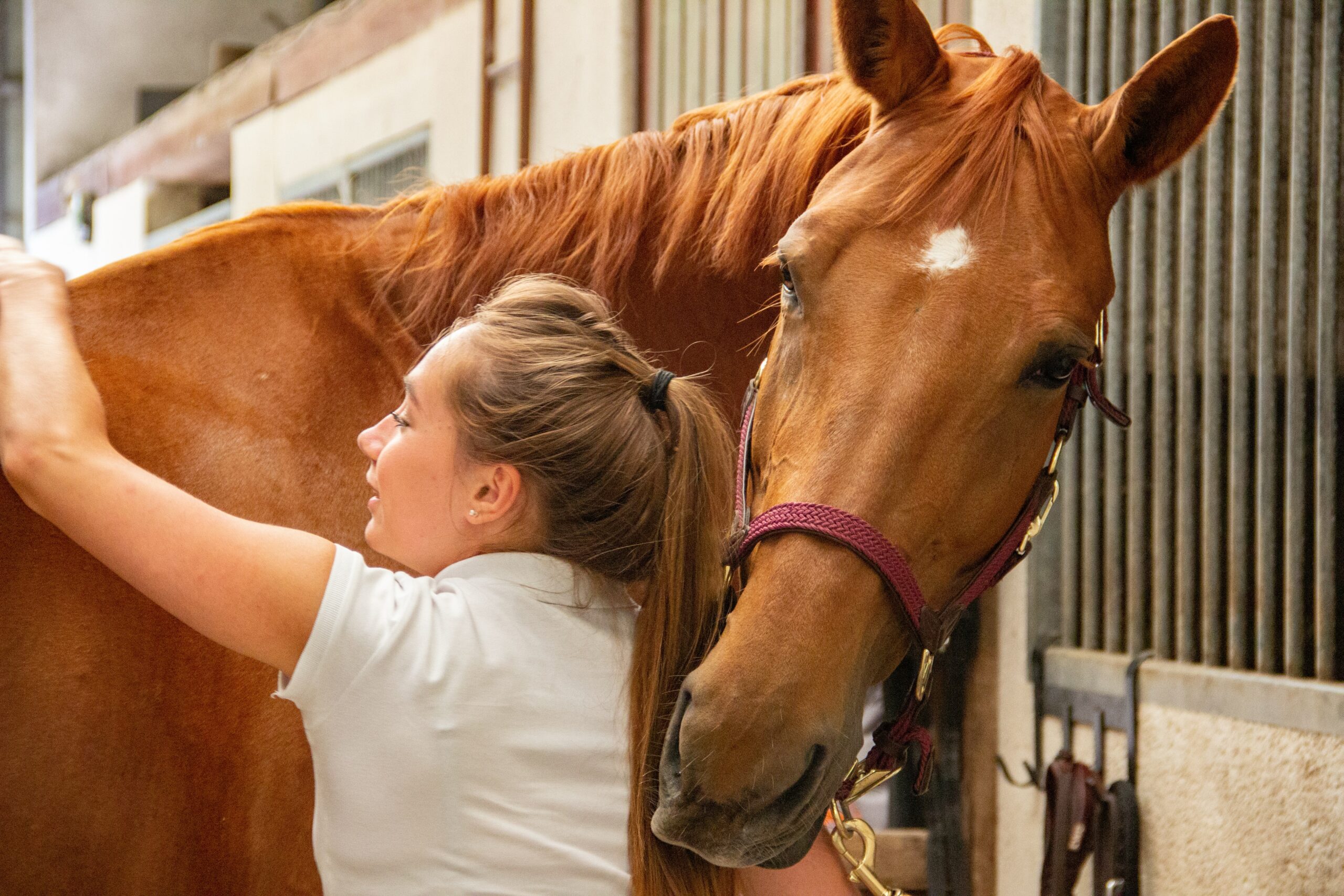By Jennifer McDougall:
Equine therapy is a therapeutic approach to treating addiction and trauma. Equine therapy aims to help people learn how to trust themselves and others through interaction with horses. A person’s interactions with the horse may involve grooming or riding the animal. Still, usually, it’s much more than that: The client learns how to work with their emotions by communicating with a non-human animal that can’t talk back or judge them. In this way, the experiential learning process provides an opportunity for self-reflection and healing that traditional talk therapy might not be able to provide.
Equine therapy has been used in holistic and traditional treatment programs for decades.
Equine therapy has been used for decades and is a popular choice for many. There are various types of therapeutic horseback riding programs, including:
- Therapeutic riding
- Equine-assisted psychotherapy (EAP)
- Equine-assisted learning (EAL)
During equine therapy, clients may be asked to groom or interact with a horse in a certain way.
During equine therapy, clients may be asked to groom or interact with a horse in a certain way. For example, they might be asked to brush the horse’s coat, feed it treats, or even clean its hooves.
These interactions can help people learn how to trust again by realizing that they are capable of caring for animals. In addition, they provide an outlet for emotions that clients might not otherwise feel comfortable expressing verbally and encourage them to break down barriers between themselves and others.
Equine therapy can help people learn how to build trust with others.
For example, if you’re working with a group that wants to build trust and confidence in each other, the horses can be used as a tool. The therapy process allows members of the group to learn how to communicate with one another without feeling threatened or judged. They are encouraged to express themselves verbally and non-verbally through activities such as grooming, tacking up, and riding in a fun environment. This helps them understand their strengths and weaknesses, which is why it can be so beneficial for individuals who might have trouble communicating openly about their feelings or opening up about any issues they may be having at home or work.
Another way equine therapy can help individuals build trust is through personal development exercises like sand play. For example, clients discuss what they expect from others while playing with sand toys on an outdoor patio area (or indoor room). These types of exercises allow for people who suffer from anxiety disorders or depression, mainly because there was no support system when growing up.
People who have been through trauma often have difficulty trusting others.
People who have been through trauma often have difficulty trusting others. This can be due to several reasons, including:
- A history of abuse or neglect
- Having been betrayed by someone they trusted in the past
- Being afraid of being hurt again
Equine therapy may be more effective than traditional talk therapy with a therapist.
Equine therapy is a holistic treatment that can be used with other therapies, like talk therapy, to help build trust and confidence in your body.
Equine therapy can help people learn how to trust others and themselves by assisting them to re-learn how to respond appropriately when things don’t go their way. It’s not just about learning how to control your horse; it’s about being able to control yourself and understand how this will affect your relationship with the horse you’re training or riding.
Passages Malibu’s dual-diagnosis treatment program for drug and alcohol addiction uses several therapies, including equine therapy.
Equine therapy is a form of psychotherapy that uses horses as the therapist. The client and horse form a relationship; in this relationship, the client learns how to build trust with themselves and others. This kind of therapy is particularly effective for those with addiction-related issues seeking help overcoming their emotional barriers.
Passages Malibu’s dual diagnosis treatment program for drug and alcohol addiction uses several therapies, including equine therapy. With this treatment, clients learn how to trust themselves and others as they work through their addiction issues with the help of trained professionals on our team at Passages Malibu.
Equine therapy is an effective way for those with addiction-related issues to learn to trust themselves and others.
Equine therapy is an effective way for those with addiction-related issues to learn to trust themselves and others. Equine therapy is a holistic treatment that helps people learn how to trust themselves, as well as their ability to form healthy relationships with others.
Those who have experienced trauma may also benefit from equine therapy because it can help them reestablish healthy relationships with those around them or even help them develop new relationships altogether. Equine therapy isn’t just limited to those recovering from substance abuse; it’s also beneficial for anyone struggling with anxiety, addiction, depression, or PTSD.
Conclusion
The equine therapy program will be a beneficial addition to the treatment program at Passages Addiction Treatment Centers. This type of therapy is limited in availability. It can be costly, but we believe it will provide our clients with an opportunity to learn more about themselves and how they can interact with others. We are excited to offer this unique approach that may help people overcome their addictions and build healthy relationships with others.
Non-12-Step Addiction Rehab at Passages
Passages Malibu is an alternative to traditional rehab that provides a holistic, client-centered approach to addiction treatment. Find lasting healing through our model of care and experiential therapies. You will uncover the root causes of your addiction, and we will provide you with tools for lifelong sobriety and change. We can help you turn your life around and find hope again. Call (888) 397-0112 today for more information.


